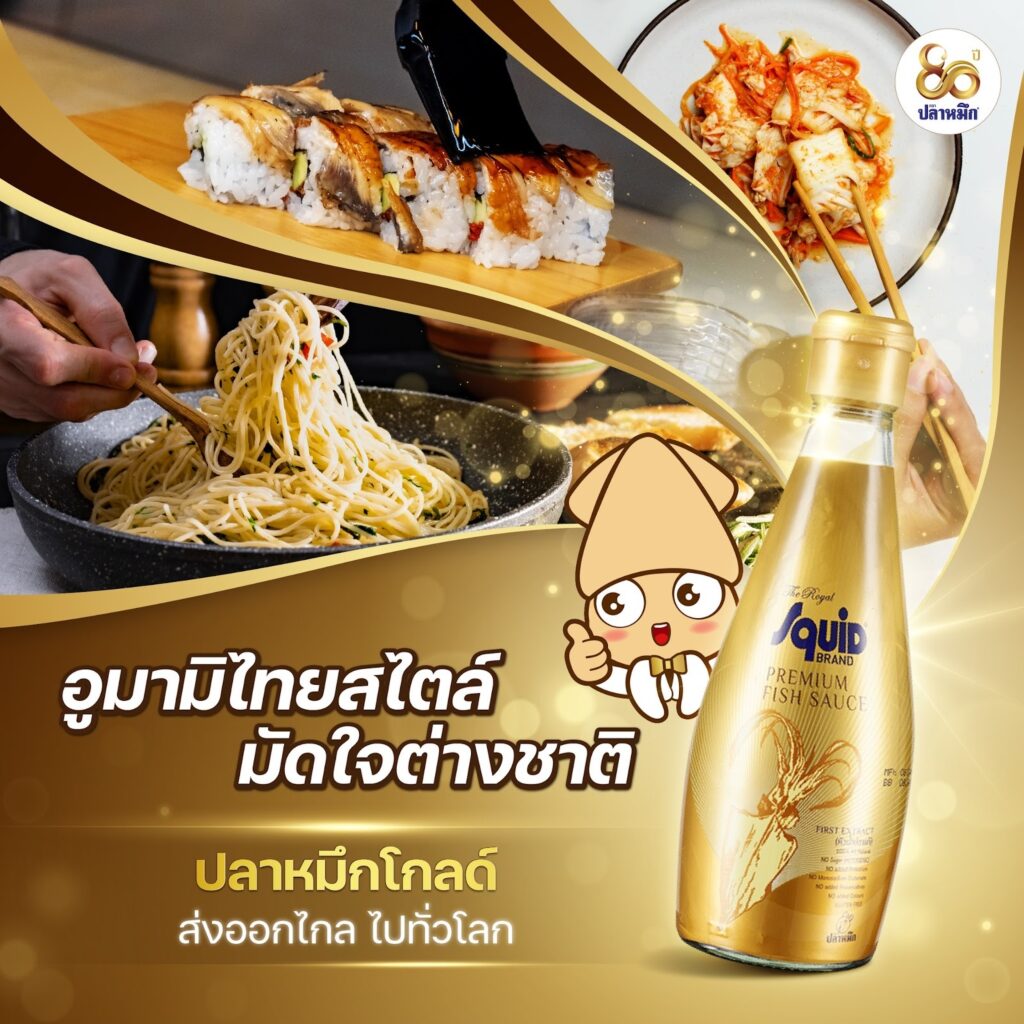In recent years, fish sauce has made its way onto dining tables across the globe — from Michelin-starred restaurants in New York to the kitchens of home chefs in Europe and the United States.
What was once a humble Southeast Asian seasoning is now recognized as one of the ultimate “umami boosters,” capable of adding depth and harmony to any dish.
What’s interesting is that among fish sauces from many countries, Thai fish sauce has gained the highest recognition for its quality, aroma, flavor, and its image of “authenticity.”
This perfectly aligns with today’s global consumer trend that values real, unprocessed ingredients over artificial or overly refined products.
The Root of Umami: Thai Fish Sauce, the Heart of Asian Cuisine
What makes Thai fish sauce stand out is its unique fermentation process made by aging fresh sea fish with natural salt for months, sometimes even years, until it becomes a deep amber liquid with a rich aroma and perfectly balanced saltiness.
This complexity is what has led chefs around the world to call Thai fish sauce “The Liquid Gold of Asia.”
In Thai culinary tradition, fish sauce is not just a salty condiment it’s the soul of flavor. From clear soups and Pad Krapow to seafood dipping sauces, every Thai dish depends on fish sauce to bring flavors together in perfect balance.
This principle resonates with modern chefs who see natural umami as the foundation of delicious, wholesome food.
The Global Rise of Clean Label & Real Ingredients
As people everywhere become more mindful of what they eat, “Clean Label” has become a key movement in the global food industry. It represents foods made from natural ingredients, free from artificial additives, and containing as few ingredients as possible.
Thai fish sauce, especially Squid Brand fits this trend perfectly.
Made from only two ingredients: fish and salt, it contains no preservatives, MSG, artificial coloring, or synthetic flavoring.
This simplicity has positioned Squid Brand as one of Thailand’s leading export products and a true representative of “Real Fish Sauce” on the world stage.

Fermentation: The Art of Sustainability
Another reason behind the global popularity of Thai fish sauce lies in its traditional fermentation process, which aligns perfectly with the global movements of sustainability and slow food.
True fish sauce relies solely on natural fermentation, no chemicals, no shortcuts and can be made sustainably within local communities.
This craft-based approach has earned admiration from consumers in Europe and Japan, who see Thai fish sauce as a “craft fermented product” that reflects care for both the environment and cultural heritage.
From Thai Kitchens to Global Tables
Cooking schools across the world — from the UK and Australia to the United States — now teach Thai cuisine with a focus on real fish sauce as the foundation of authentic Thai flavor.
Courses like “Understanding Fish Sauce” have become essential lessons for learning Thai cooking.
Beyond its export success, Thai fish sauce has become a form of soft power that represents Thai culture and spreads its culinary identity around the world.

Thai fish sauce has proven that true simplicity is timeless. With just fish and salt refined through time, patience, and wisdom it becomes a seasoning that embodies culture, craftsmanship, and the art of flavor.
It’s not just a passing trend, but a return to authenticity to real food that the world is rediscovering and cherishing once again.
